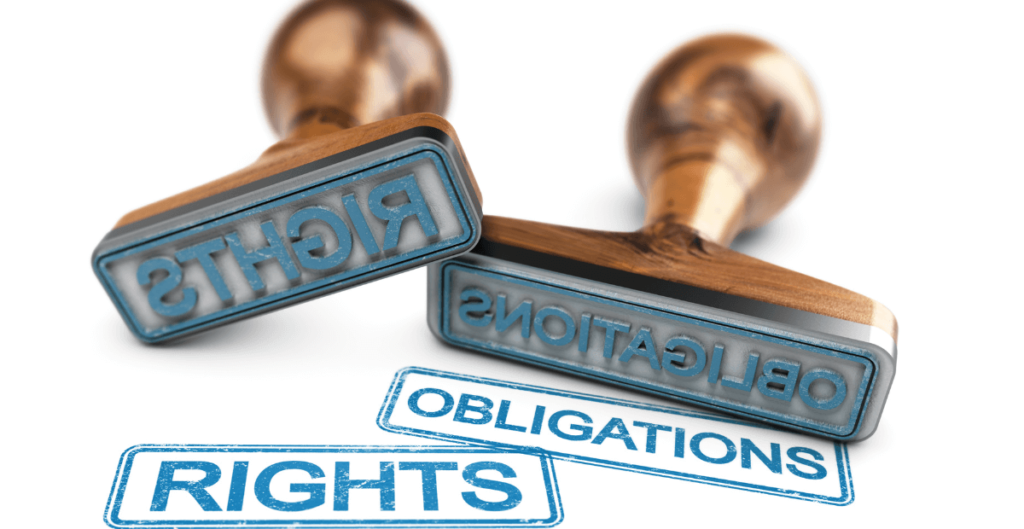Divorce can be an emotionally and financially draining experience, but it can be even more challenging when divorcing a narcissist. Narcissists are known for their manipulative and controlling behavior, which can make the divorce process even more complicated and difficult.
Navigating the financial challenges of divorcing a narcissist requires a strategic approach and a thorough understanding of your legal rights and obligations. In this blog post, I will 10 Steps for Navigating Financial Challenges in Narcissist Divorce and ensure a fair settlement during a divorce with a narcissist.
Navigating the financial challenges of divorcing a narcissist requires a strategic approach and a thorough understanding of your legal rights and obligations. In this blog post, I will 10 Steps for Navigating Financial Challenges in Narcissist Divorce and ensure a fair settlement during a divorce with a narcissist.
From opening a separate bank account to hiring a financial professional and understanding your legal rights, we will provide you with the tools and strategies you need to move forward with confidence and financial security.
1. Get Organized and Understand Your Financial Situation

When going through a divorce with a Narcissist, it is essential to have a clear understanding of your current financial situation. This will help you make informed decisions and negotiate effectively with your soon-to-be ex-spouse. Here are some steps you can take to get organized and understand your financial situation:
A. Importance of understanding your current financial state:
To know your assets and debts
The first step is to understand your assets and debts. This includes any joint accounts, bank accounts, credit cards, investments, and loans that you and your spouse share. Having a clear understanding of your financial situation will help you determine what is at stake in the divorce settlement.
To create a realistic budget
Knowing your current financial state will also allow you to create a realistic budget for your future. This will help you determine how much money you need to maintain your current lifestyle and what changes you may need to make to adjust to your new financial situation.
To plan for the future
Finally, understanding your financial situation will help you plan for the future. This includes setting financial goals and creating a plan to achieve them. This could include saving for retirement, paying off debt, or building an emergency fund.
B. Steps to take for financial awareness:
Gather financial documents
Start by gathering all of your financial documents, including bank statements, tax returns, and investment account statements. You should also gather any documents related to joint accounts, loans, or credit cards that you share with your spouse.
Track your expenses
Track your expenses for a few months to get an idea of how much money you are spending and where it is going. This will help you create a realistic budget for your future.
Consider working with a financial advisor
If you are unsure of how to manage your finances or need help creating a plan for the future, consider working with a financial advisor. They can help you navigate the complexities of divorce and create a plan for achieving your financial goals.
2. Open a Separate Bank Account

When divorcing a narcissist, it is crucial to maintain separate finances. One way to do this is by opening a separate bank account. Here are some reasons why it’s important and tips to open and manage a new account:
A. Why it’s crucial to maintain separate finances:
- Protecting your assets — Opening a separate bank account can protect your assets from your spouse’s financial decisions or actions.
- Maintaining financial independence — Keeping separate finances can also help you maintain financial independence and control over your own money.
- Simplifying the divorce process — Having separate finances can simplify the divorce process by avoiding disputes over joint accounts or shared assets.
B. Tips to open and manage a new account:
- Choose a bank or credit union — Research and compare different banks or credit unions to find one that best meets your needs. Look for a bank with low fees and convenient locations or online access.
- Open a checking and savings account — Consider opening both a checking and savings account. The checking account can be used for everyday expenses, while the savings account can be used for emergency funds or long-term savings goals.
- Update your direct deposit and automatic payments — Once you have opened a new account, update any direct deposit or automatic payments to ensure that they are going to the correct account.
- Monitor your account regularly — Make sure to monitor your account regularly to ensure that there are no unauthorized transactions or errors. This can also help you stay on track with your budget and financial goals.
- Keep your spouse informed — While it’s important to maintain separate finances, it’s also important to keep your spouse informed of any changes or updates. This can help avoid conflicts and ensure that both parties are on the same page.
In conclusion, opening a separate bank account is a crucial step in maintaining financial independence and protecting your assets during a divorce. By following these tips to open and manage a new account, you can take control of your finances and make informed decisions for your future.
3. Document All Financial Assets and Debts

During a divorce, it is important to document all financial assets and debts. This includes any joint accounts, bank accounts, credit cards, investments, and loans that you and your spouse share. Here are some reasons why keeping records is important, as well as best practices for documentation and analysis:
A. Importance of keeping records:
- Ensuring a fair settlement — Documenting all financial assets and debts can help ensure a fair settlement during the divorce process. This includes making sure that all assets and debts are accounted for and divided appropriately.
- Providing evidence in court — Keeping records can also provide evidence in court if necessary. This includes any financial agreements, account statements, or other financial documents that may be relevant to the case.
- Protecting yourself — Finally, documenting all financial assets and debts can help protect yourself from any fraudulent or suspicious activity. This includes keeping track of any changes or transactions that may be questionable.
B. Best practices for documentation and analysis:
- Keep detailed records — Keep detailed records of all financial assets and debts. This includes account statements, contracts, receipts, and any other relevant documents.
- Organize your records — Organize your records in a way that is easy to understand and navigate. This could include using spreadsheets or other organizational tools.
- Analyze your finances — Once you have documented all of your financial assets and debts, analyze your finances to determine your net worth and any potential financial implications of the divorce.
4. Consider Hiring a Financial Professional

During a divorce, hiring a financial professional can be extremely beneficial. These professionals can help you navigate complex financial issues and ensure that you are making informed decisions. Here are some of the benefits of working with a financial professional, as well as how to choose the best service for your situation:
A. The benefits of working with a professional:
- Expertise and knowledge — Financial professionals have the expertise and knowledge to help you make informed decisions regarding your finances. They can help you understand complex financial issues and provide guidance on the best course of action.
- Objectivity — A financial professional can provide an objective viewpoint, which can be especially helpful during a divorce. They can provide a neutral perspective and help you make decisions based on what is best for your financial situation.
- Time-saving — By hiring a financial professional, you can save time and reduce stress during the divorce process. They can handle many of the financial issues that may arise, allowing you to focus on other aspects of the divorce.
B. How to choose the best service for your situation:
- Determine your needs — Consider what services you may need, such as financial planning, budgeting, or tax planning. This will help you find a financial professional who specializes in the areas that are most relevant to your situation.
- Research and compare — Research and compare different financial professionals to find one that best meets your needs. Look for professionals with experience and qualifications, as well as positive reviews from past clients.
- Consider the cost — Financial professionals may charge an hourly rate, a flat fee, or a percentage of assets. Consider the cost of the service and ensure that it fits within your budget.
- Schedule a consultation — Once you have identified a few potential financial professionals, schedule a consultation to discuss your needs and goals. This will help you determine if they are the right fit for your situation.
In conclusion, hiring a financial professional can be extremely beneficial during a divorce. By understanding the benefits of working with a professional and following best practices for choosing a service, you can ensure that you receive the guidance and support you need to make informed financial decisions.
5. Protect Your Credit Score

During a divorce, your credit score can be negatively affected if you do not take steps to protect it. Here are some ways that your credit score can be affected, as well as strategies to maintain and improve your credit score:
A. How your credit score can be affected:
- Missed payments — If your spouse is responsible for paying bills and they fail to do so, it can negatively impact your credit score.
- Joint accounts — If you and your spouse have joint accounts, any missed payments or other negative activity can impact both of your credit scores.
- Divorce-related debt — If you accumulate debt during the divorce process, it can negatively impact your credit score.
B. Strategies to maintain and improve your credit score:
- Separate your finances — Open a separate bank account and credit card in your name only. This will help ensure that you are solely responsible for any debt that you accumulate.
- Monitor your credit report — Regularly monitor your credit report to ensure that all accounts and transactions are accurate. This can help you identify any suspicious activity or errors that could negatively impact your credit score.
- Pay bills on time — Ensure that all bills are paid on time. Consider setting up automatic payments or reminders to help you stay on track.
- Pay down debt — Work to pay down any debt that you may have. This can help improve your credit score over time.
Protecting your credit score during a divorce is important to ensure financial stability in the future. By understanding how your credit score can be affected and following best practices for maintaining and improving your score, you can help protect your financial well-being.
6. Understand Your Legal Rights and Obligations

During a divorce, it is important to understand your legal rights and obligations. Here are some basic legal principles to consider, as well as the importance of consulting with a legal professional:
A. Basic legal principles during a divorce:
- Division of assets — During a divorce, assets such as property, investments, and bank accounts will need to be divided. Depending on the state you live in, the division may be equal or equitable.
- Child custody and support — If you have children, custody and support arrangements will need to be made. This can be a complex process and will involve determining the best interests of the children.
- Spousal support — In some cases, spousal support may be awarded to one party. This will depend on factors such as the length of the marriage and the income and earning potential of each spouse.
B. Importance of consulting with a legal professional:
- Protecting your legal rights — A legal professional can help ensure that your legal rights are protected throughout the divorce process. They can provide guidance on what to expect and help you understand your obligations and options.
- Navigating complex legal issues — Divorce can involve complex legal issues, especially if there are significant assets or child custody disputes involved. A legal professional can help navigate these issues and provide guidance on the best course of action.
- Avoiding costly mistakes — Making mistakes during the divorce process can be costly in terms of time, money, and emotional stress. A legal professional can help you avoid these mistakes and ensure that your interests are protected.
Understanding your legal rights and obligations during a divorce is important to ensure a fair and equitable outcome. By consulting with a legal professional, you can ensure that you are protected and that the divorce process proceeds as smoothly as possible.
7. Negotiate a Fair Settlement

During a divorce, negotiating a fair settlement is important to ensure that both parties are able to move on with their lives. Here are some strategies for negotiation and communication, as well as how to ensure a fair division of assets and debts:
A. Strategies for negotiation and communication:
- Remain calm — Divorce can be an emotional and stressful process, but it is important to remain calm and level-headed during negotiations.
- Listen to the other party — It is important to listen to the other party’s perspective and concerns. This can help build trust and make negotiations more productive.
- Be flexible — Negotiations may involve compromise and being flexible on certain issues. It is important to prioritize what is most important and be open to finding creative solutions.
- Communicate clearly — Effective communication is key during negotiations. Be clear and direct about your needs and expectations, and ask questions to ensure that you understand the other party’s position.
B. How to ensure a fair division of assets and debts:
- Make a comprehensive list — Make a comprehensive list of all assets and debts, including their value and any associated costs.
- Prioritize your needs — Identify which assets are most important to you and be willing to compromise on other assets.
- Consider the tax implications — Some assets may have tax implications, such as capital gains taxes on the sale of property. Consider these implications when negotiating a settlement.
- Seek professional guidance — Consider working with a financial professional or legal professional to ensure that the division of assets and debts is fair and equitable.
In conclusion, negotiating a fair settlement during a divorce is important to ensure a successful outcome for both parties. By following effective strategies for negotiation and communication, and prioritizing a fair division of assets and debts, you can ensure that the divorce process proceeds as smoothly as possible.
8. Consider Mediation or Collaborative Divorce

When going through a divorce, it is important to consider options for dispute resolution. Two options are mediation and collaborative divorce. Here are the benefits and pitfalls of each method:
A. Options for dispute resolution:
- Mediation — In mediation, a neutral third party helps facilitate negotiations between the two parties. The goal is to reach a mutually beneficial agreement on all issues involved in the divorce.
- Collaborative divorce — In a collaborative divorce, both parties work with their own attorneys and other professionals, such as financial experts and mental health professionals, to reach a settlement outside of court.
B. Benefits and pitfalls of each method:
- Mediation:
- Benefits: Mediation can be less expensive and less time-consuming than going to court. It can also help maintain a cordial relationship between the parties, which can be especially important when children are involved.
- Pitfalls: If the parties are unable to reach an agreement through mediation, they may still need to go to court. Additionally, if one party has significantly more power or leverage than the other, mediation may not be effective.
- Benefits: Collaborative divorce can provide a more amicable environment for negotiation and settlement. The parties can work together to reach a mutually beneficial agreement, rather than having a judge make decisions for them. This can also be less expensive than going to court.
- Pitfalls: If the parties are unable to reach an agreement, they may need to start over with new attorneys and potentially go to court. Additionally, if one party is not fully transparent about their financial situation or is unwilling to compromise, collaborative divorce may not be effective.
In conclusion, mediation and collaborative divorce are two options for dispute resolution during a divorce. While both have their benefits and pitfalls, it is important to consider which method is best for your specific situation. A legal professional can help provide guidance on which method may be most effective.
9. Take Steps to Prevent Financial Abuse

Financial abuse can occur during a divorce, and it is important to recognize the signs and take steps to prevent it. Here are some strategies for recognizing signs of financial abuse and protective actions you can take:
A. Recognizing signs of financial abuse:
- Controlling access to financial accounts — One party may restrict access to financial accounts or hide financial information from the other party.
- Coercing financial decisions — One party may use coercion or intimidation to force the other party into making certain financial decisions.
- Hiding assets — One party may hide assets, such as property or bank accounts, to prevent the other party from accessing them.
- Racking up debt — One party may accumulate debt in the other party’s name without their knowledge or consent.
B. Protective actions you can take:
- Gather financial information — Make sure you have access to all financial information, including account numbers, statements, and tax documents.
- Open new accounts — Open new bank accounts and credit cards in your own name to establish financial independence.
- Freeze joint accounts — Consider freezing joint accounts to prevent the other party from making unauthorized transactions.
- Consult with a legal professional — If you suspect financial abuse, consult with a legal professional who can help protect your rights and take appropriate legal action.
Financial abuse can occur during a divorce and can have serious consequences. By recognizing signs of financial abuse and taking protective actions, you can help ensure your financial well-being during and after a divorce. It is important to consult with a legal professional who can provide guidance and support during this process.
10. Rebuild Your Financial Future with a Solid Plan

After a divorce, it is important to rebuild your financial future with a solid plan. Here are some tips for creating and implementing a plan for success:
A. Importance of long-term financial planning:
- Set financial goals — Identify your short-term and long-term financial goals, such as paying off debt, building an emergency fund, or saving for retirement.
- Create a budget — Develop a realistic budget that includes all of your expenses and income to help you track your spending and stay on track with your financial goals.
- Invest wisely — Consider working with a financial advisor to develop a solid investment strategy that aligns with your financial goals and risk tolerance.
B. Tips for creating and implementing a plan for success:
- Prioritize debt repayment — Pay off high-interest debt first to reduce overall interest payments and improve your credit score.
- Build an emergency fund — Aim to save three to six months’ worth of living expenses in case of unexpected events, such as job loss or medical emergencies.
- Monitor your credit score — Regularly monitor your credit score and report to ensure accuracy and identify potential issues.
- Review and adjust your plan regularly — Review your financial plan regularly to ensure it aligns with your current financial situation and adjust as needed to stay on track with your goals.
In conclusion, rebuilding your financial future after a divorce requires a solid plan that aligns with your financial goals and priorities. By setting financial goals, creating a budget, and investing wisely, you can take steps to achieve long-term financial success. It is important to review and adjust your plan regularly to stay on track with your goals and priorities.
Final Thoughts
Divorce can be a difficult and challenging experience, particularly when it comes to navigating the financial implications. However, by taking proactive steps to protect your financial interests and plan for the future, you can move forward with a brighter financial future.
A. Overcoming the challenges of divorce:
- Dealing with emotional stress — Divorce can be emotionally stressful, but it’s important to focus on taking care of yourself and seeking support when needed.
- Navigating complex financial issues — Divorce can involve complex financial issues, but with the right strategies and professional support, you can protect your financial interests and secure a fair settlement.
B. Embracing a new start with confidence and financial security:
- Building financial independence — By establishing separate bank accounts, documenting all financial assets and debts, and understanding your legal rights and obligations, you can build a solid financial foundation for your future.
- Creating a long-term financial plan — By setting financial goals, creating a budget, and investing wisely, you can take steps to achieve long-term financial success.
- Moving forward with confidence — With the right strategies and support, you can embrace a new start with confidence and financial security.
In conclusion, divorce can be a challenging experience, but with the right strategies and support, you can overcome the challenges and move forward with a brighter financial future. By protecting your financial interests, planning for the future, and embracing a new start with confidence, you can achieve long-term financial success and security.

Thanks for sharing. I read many of your blog posts, cool, your blog is very good. https://www.binance.com/fr/register?ref=V2H9AFPY